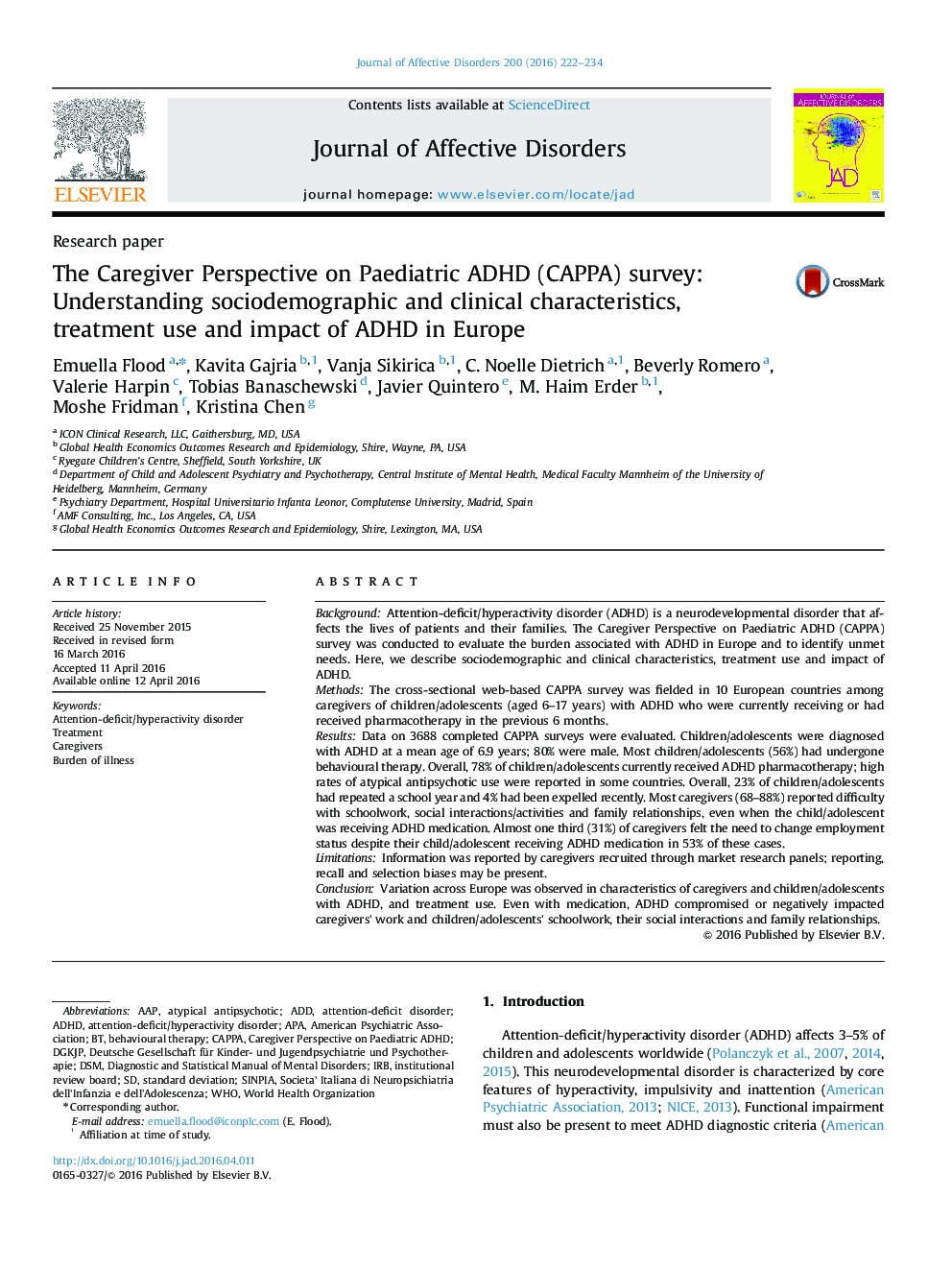| کد مقاله | کد نشریه | سال انتشار | مقاله انگلیسی | نسخه تمام متن |
|---|---|---|---|---|
| 6230109 | 1608125 | 2016 | 13 صفحه PDF | دانلود رایگان |

- Assessment of caregiver perspectives on the burden of paediatric ADHD in Europe.
- Differences in caregiver characteristics and perspectives across European countries.
- Substantial variation in patient characteristics and ADHD treatment use.
- Academic, social and family functioning affected by ADHD
- Considerable impact of ADHD on both children/adolescents and caregivers.
BackgroundAttention-deficit/hyperactivity disorder (ADHD) is a neurodevelopmental disorder that affects the lives of patients and their families. The Caregiver Perspective on Paediatric ADHD (CAPPA) survey was conducted to evaluate the burden associated with ADHD in Europe and to identify unmet needs. Here, we describe sociodemographic and clinical characteristics, treatment use and impact of ADHD.MethodsThe cross-sectional web-based CAPPA survey was fielded in 10 European countries among caregivers of children/adolescents (aged 6-17 years) with ADHD who were currently receiving or had received pharmacotherapy in the previous 6 months.ResultsData on 3688 completed CAPPA surveys were evaluated. Children/adolescents were diagnosed with ADHD at a mean age of 6.9 years; 80% were male. Most children/adolescents (56%) had undergone behavioural therapy. Overall, 78% of children/adolescents currently received ADHD pharmacotherapy; high rates of atypical antipsychotic use were reported in some countries. Overall, 23% of children/adolescents had repeated a school year and 4% had been expelled recently. Most caregivers (68-88%) reported difficulty with schoolwork, social interactions/activities and family relationships, even when the child/adolescent was receiving ADHD medication. Almost one third (31%) of caregivers felt the need to change employment status despite their child/adolescent receiving ADHD medication in 53% of these cases.LimitationsInformation was reported by caregivers recruited through market research panels; reporting, recall and selection biases may be present.ConclusionVariation across Europe was observed in characteristics of caregivers and children/adolescents with ADHD, and treatment use. Even with medication, ADHD compromised or negatively impacted caregivers' work and children/adolescents' schoolwork, their social interactions and family relationships.
Journal: Journal of Affective Disorders - Volume 200, August 2016, Pages 222-234